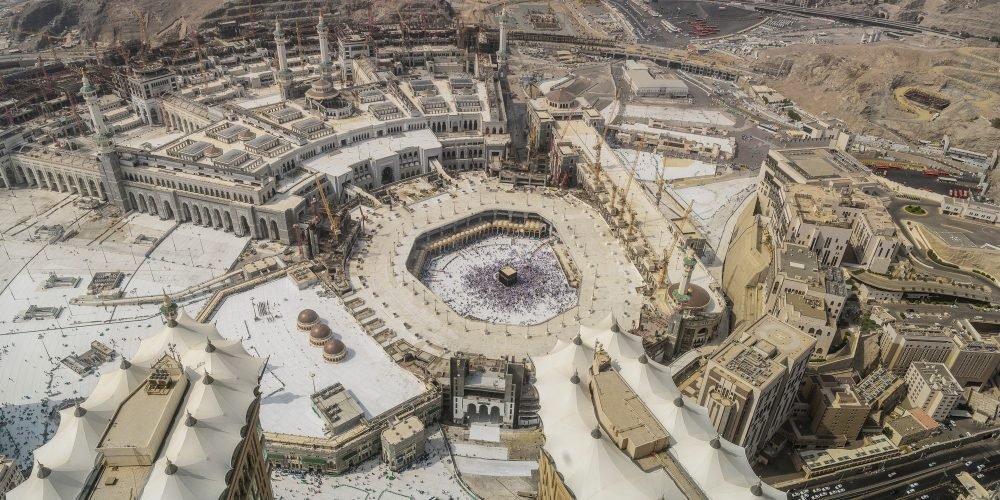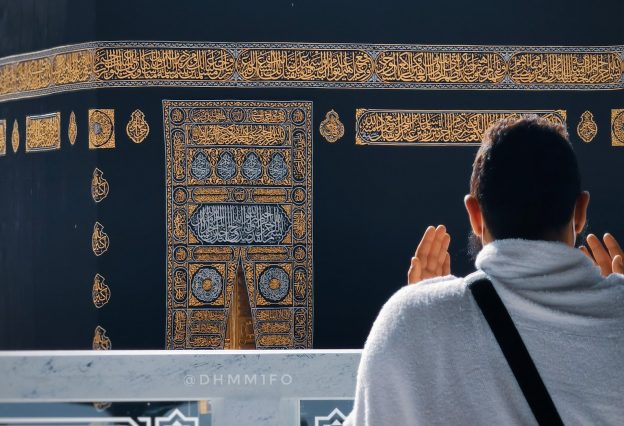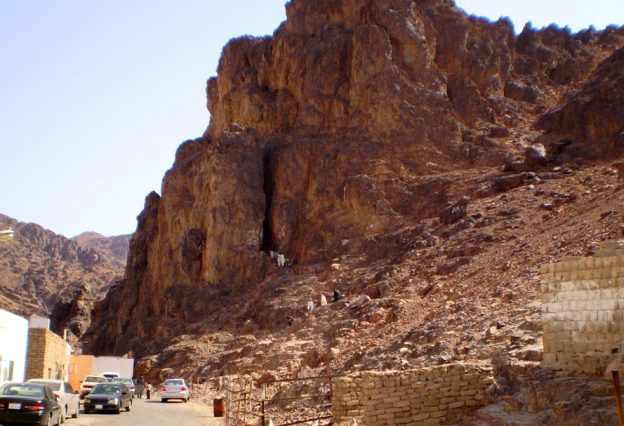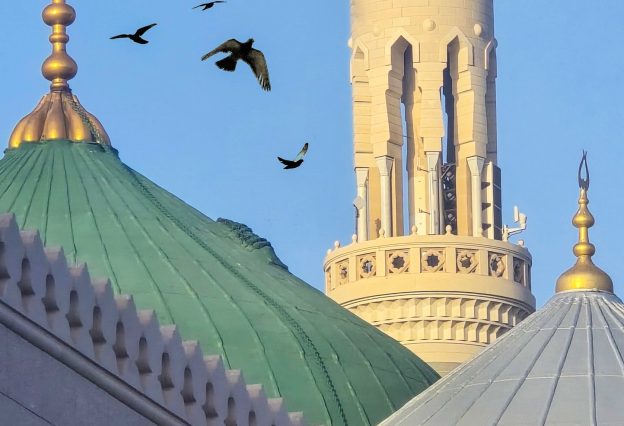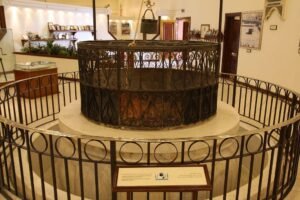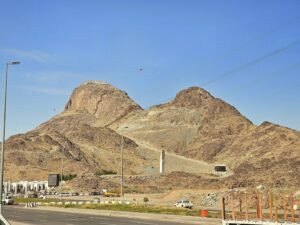Tahara 1. Tahara- Cleanliness 2. إِنَّ اللَّهَ يُحِبُّ التَّوَّابِينَ وَيُحِبُّ الْمُتَطَهِّرِينَ Most surely Allah loves those people who refrain from evil and keep themselves pure and clean ﴿ 2:222 ﴾ 4.
- Muslims are also required to be clean while praying
- Purification of the body and clothes is called taharah طہارہ .
- Prophet (saw) said that “Cleanliness is half of faith
- To have taharah for the body, one should do either ghusl غسل or wudu وضو .
- Wudu is often translated as “partial ablution”, as opposed to ghusl, or “full ablution”.
- A Muslim is required to perform ablution ( وضو ) before Salat.
- Ablution prepares one mentally for Salat and it also helps concentration in prayer.
5. Maida 6 المايدہ
- يَا أَيُّهَا الَّذِينَ آَمَنُوا إِذَا قُمْتُمْ إِلَى الصَّلَاةِ فَاغْسِلُوا وُجُوهَكُمْ وَأَيْدِيَكُمْ إِلَى الْمَرَافِقِ وَامْسَحُوا بِرُءُوسِكُمْ وَأَرْجُلَكُمْ إِلَى الْكَعْبَيْنِ وَإِنْ كُنْتُمْ مَرْضَى أَوْ عَلَى سَفَرٍ أَوْ جَاءَ أَحَدٌ مِنْكُمْ مِنَ الْغَائِطِ أَوْ لَامَسْتُمُ النِّسَاءَ فَلَمْ تَجِدُوا مَاءً فَتَيَمَّمُوا صَعِيدًا طَيِّبًا فَامْسَحُوا بِوُجُوهِكُمْ وَأَيْدِيكُمْ مِنْهُمَا يُرِيدُ اللَّهُ لِيَجْعَلَ عَلَيْكُمْ مِنْ حَرَجٍ وَلَكِنْ يُرِيدُ لِيُطَهِّرَكُمْ وَلِيُتِمَّ نِعْمَتَهُ عَلَيْكُمْ لَعَلَّكُمْ تَشْكُرُونَ
- O ye who believe! when ye prepare for prayer, wash your faces, and your hands (and arms) to the elbows; Rub your heads (with water); and (wash) your feet to the ankles. If ye are in a state of ceremonial impurity, bathe your whole body. But if ye are ill, or on a journey, or one of you come from offices of nature, or you have been in contact with women, and you find no water, then take for yourselves clean sand or earth, and rub therewith your faces and hands, Allah doth not wish to place you in a difficulty, but to make you clean, and to complete his favour to you, that you may be grateful
6. وضو
- Farā’id (obligation):
- Washing the face once.
- Washing both the arms including the elbows once.
- Performing masah(wiping) of one fourth of the head.
- Washing both the feet once up to and including the ankles. It’s not sufficient for one to pass wet hand over the feet or shoes. Under certain conditions masah can be done over leather socks known as khuffs
7. Wash the right hand up to the wrist (and between the fingers) three times, then similarly for the left hand. Make sure that no part of the hands is left dry. Repeat this for the left hand. Rinse the mouth and spit out the water three times. Optionally rub the teeth with a Miswak if not available then one can use the fore finger. gently put water into the nostrils with the right hand, and clean it with your left hand. 8. Wash the face (from the hairline on the forehead to where facial hair begins and ear to ear). This is to be performed three times. Make sure that no part of the face is left dry. Wash the entire right arm, including the hand, up to and including the elbow three times; then the left arm three times. Make sure that no part of the hands is left dry. 9. Then perform Masah (anointing). Wet the hands and wipe with the palms over the head, first from front to the back and then from back to the front once. Then (not necessarily wetting the hands again), insert the index fingers in the ears and drive the thumb behind the ears (junction between ear and the head) from bottom to the top in a circular motion. 10. Wash both feet, starting with the right foot, from the toes up to and including the ankles thrice. Make sure that no part of the feet, including between the fingers, is left dry. 11. I testify that there is no deity worthy of worship except Allah alone and I testify that Muhammad is his slave and his Messenger (Muslim). O Allah make me among those who repent and make me among those who keep (themselves) pure (Thirmidi) 12. Sunnah & Mustahabbat (recommended) acts of Wudu
- Sunnah:
- Reciting bismillah .
- Intention of performing wudu.
- Washing both the hands up to the wrists.
- Rinsing the inner mouth.
- Sniffing water and blowing it out
- Passing of wet fingers between the fingers of the hand and feet.
- Passing of wet fingers into the beard.
- Brushing the teeth, preferably with a miswak .
- Wudu is done systematically.
- Washing of each part one after the other without pause, so no part dries up before wudu is completed.
- Washing each limb thrice.
- Performing wudu towards the Qiblah
- Mustahabbāt :
- A handful of mustahabb (recommended) acts that are considered to make the wudu better. If one of these acts is omitted, the wudu is still considered valid.
- Reciting the shahadah after the ablution.
- During wudu one should not engage in worldly talk.
- Choosing a clean place for ablution.
- Not wasting water in ablution.
- Starting from the right side and then the left.
14. Invalidation of wudu
- Theoretically, one can perform one wudu for salat and this wudu would be considered valid for the rest of the day. However, traditionally Muslims believe that certain acts invalidate the wudu (often referred to as “breaking wudu”) and these are:
- Defecation, passing gas or urination
- Emission of semen (ghusl is required)
- Sleep while reclining
- Vomiting
- Loss of senses
- Fainting
- Laughing aloud whilst in Salah
- Sexual contact with another person (ghusl is required)
- Touching the private parts with the bare hands
- Blood or pus leaving the body so that it leaves the point of exit (however if the blood or pus exits from the private parts than any amount breaks wudu)
- Touching a person of the opposite gender who is not your blood/milk relative (E.g.: your spouse)
15. Circumstances when tayammum is allowed/necessary/prescribed.
- Tayammum is a useful psychological device to keep the sense of ritual purity and the sanctity of Prayer alive in man’s mind even when water – the principal agent of purification – is not available
- Tayammum may be substituted for wudu or ghusl when access to water is restricted or impractical, namely:
- When sufficient amounts of water for ritual washing are not available, including when using the available water for wudu or ghusl would leave insufficient water for drinking.
- When obtaining water is hazardous or prohibitively expensive.
- When using water poses a health risk.
16. Performing Tayammum (Dry Ablution)
- Tayammum consists of the following steps
- Finding a piece of ground which is free of najaasah (impurity) . This could be any natural surface such as rock, sand, or dust.
- Recite the bismillah .
- Make niyyah , or intention to make tayammum .
- Place the hands on the surface of the ground.
- Lift hands with palms downwards, ensuring that no dust remains, may rub them together.
- Rub right hand with left hand, and left with right hand.
- Rub face with hands.
17. Tayammum 1 2 3 18. Items on which Tayammum is permitted and/or not permitted
- Tahir (pure) earth
- Sand
- Stone
- Limestone
- Baked earthen pots (unglazed)
- Walls of mud, stone or brick
- Clay
- All items which have thick dust on them
- Wood
- Metal
- Glass
- Food Items
- All items which burn to ash, rot or melt
19. Ghusl غسل
- An Arabic term referring to the full ablution (ritual washing) required in Islam for various rituals and prayers.
- The ablution becomes mandatory for any adult Muslim after having sexual intercourse, any sexual discharge, completion of the menstrual cycle, giving birth, and death by natural causes.
- Islam also recommends (i.e. it is mustahab ) the performance of the full ablution before the Friday and Eid prayers, before entering the ehram , in preparation for hajj after having lost consciousness, and after formally converting to Islam
20. Nisa 43
- يَا أَيُّهَا الَّذِينَ آَمَنُوا لَا تَقْرَبُوا الصَّلَاةَ وَأَنْتُمْ سُكَارَى حَتَّى تَعْلَمُوا مَا تَقُولُونَ وَلَا جُنُبًا إِلَّا عَابِرِي سَبِيلٍ حَتَّى تَغْتَسِلُوا وَإِنْ كُنْتُمْ مَرْضَى أَوْ عَلَى سَفَرٍ أَوْ جَاءَ أَحَدٌ مِنْكُمْ مِنَ الْغَائِطِ أَوْ لَامَسْتُمُ النِّسَاءَ فَلَمْ تَجِدُوا مَاءً فَتَيَمَّمُوا صَعِيدًا طَيِّبًا فَامْسَحُوا بِوُجُوهِكُمْ وَأَيْدِيكُمْ إِنَّ اللَّهَ كَانَ عَفُوًّا غَفُورًا
- “O ye who believe! Approach not prayers with a mind befogged, until ye can understand all that ye say,- nor in a state of ceremonial impurity (Except when travelling on the road), until after washing your whole body. If ye are ill, or on a journey, or one of you cometh from offices of nature, or ye have been in contact with women, and ye find no water, then take for yourselves clean sand or earth, and rub therewith your faces and hands. For Allah doth blot out sins and forgive again and again
21. Farā’id &Sunnah of Ghusl
- There are 3 obligatory acts. If one of these acts is omitted, it must be returned to and then completion of the successive acts are to be performed.
- Rinsing the inner mouth.
- Sniffing water and blowing it out.
- To wash the entire body in such a manner that not even an area equal to a strand of hair be left dry. If this is not done properly, then Ghusl will not be done.
- Sunnah acts:
- Washing both the hands up to the wrists.
- Wash the private parts and remove dirt or filth from the body.
- Perform Wudu.
- Water should be poured over the head three times so that it flows all over the body
22.
- A narration attributed to Aisha bint Abi Bakr reports:
- “ When Allah’s Messenger bathed because of sexual intercourse, he first washed his hands; he then poured water with his right hand on his left hand and washed his private parts. He then performed wudu as is done for prayer. He then took some water and ran his fingers in the roots of his hair. And when he found that it had been properly moistened, he poured three handfuls on his head and then poured water over his body and subsequently washed his feet.
23.
- A narration attributed to Maimuna, reports:
- “ I placed water near The Messenger of Allah to take a bath because of sexual intercourse. He washed the palms of his hands twice or thrice and then put his hand in the basin and poured water over his body then struck hand against the earth and rubbed it with force and then performed ablution for the prayer and then poured three handfuls of water on his head and then washed his whole body after which he moved aside from that place and washed his feet, and then I brought a towel (so that he may wipe his body), but he returned it

